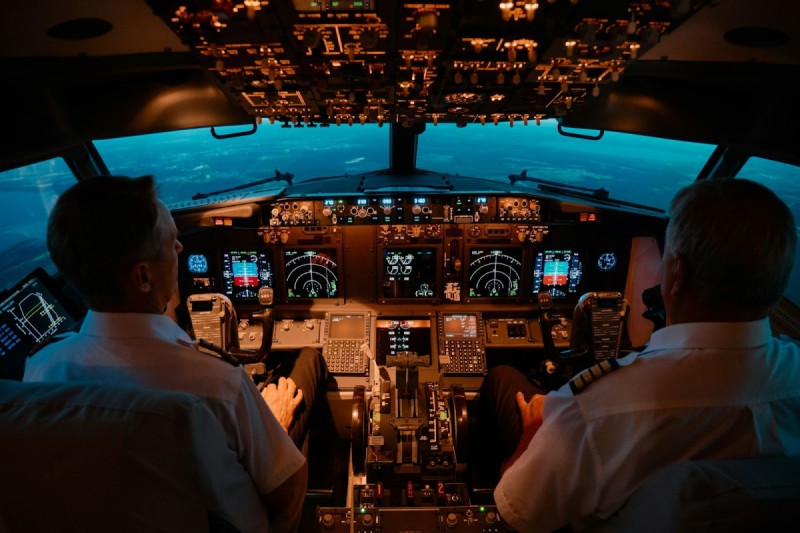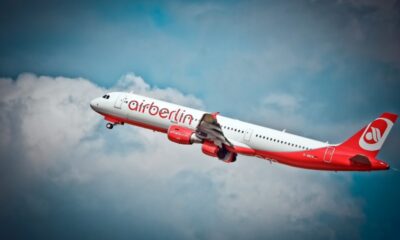Travel
Tom Hill: How Flying Cultivates Discipline, Focus, and Resilience

Aviation is far more than a technical discipline—it’s a crucible for developing life skills that extend well beyond the cockpit. Pilots don’t just learn how to fly; they adopt a mindset built on discipline, focus, and resilience. The structure and accountability demanded by aviation training sharpen habits that influence how individuals approach challenges in every part of life.
As Tom Hill knows, flying also requires operating under pressure, where decisions matter and clarity is crucial. Through real-world practice in high-stakes situations, pilots cultivate emotional steadiness and a results-driven focus.
Over time, these qualities become deeply rooted, influencing behavior both in the air and on the ground. Whether it’s navigating uncertainty, managing people, or making split-second choices, the lessons of aviation remain relevant long after the flight ends.
What Flying Reveals Beyond the Controls
Flying is often seen as a technical pursuit, but time in the cockpit offers far more than just navigation and control. Pilots develop habits that shape the way they think, respond, and lead, both in the air and on the ground. The demands of aviation turn routine flights into opportunities for personal growth.
Through training and experience, pilots naturally build discipline, sharpen focus, and develop the ability to stay calm under pressure. These qualities aren’t taught through lectures—they’re earned through repetition, responsibility, and reflection.
Whether flying solo or as part of a crew, the cockpit becomes a space where character is tested and strengthened. The sense of responsibility that comes with every takeoff and landing deepens over time, reinforcing self-awareness and maturity.
Discipline Through Structure and Accountability
Aviation runs on precision. From the moment flight training begins, there’s an emphasis on routines—pre-flight checks, weather assessments, logbook updates—all done with strict attention to detail. Over time, this structure becomes second nature, building a deep sense of personal accountability that extends well beyond the runway. Pilots learn early that consistency isn’t just desirable—it’s essential.
Missing a checklist item isn’t just a slip-up; it could jeopardize safety. That weight of responsibility teaches pilots to be thorough and consistent. These behaviors often carry into everyday life, where the same methodical mindset helps with time management, organization, and follow-through in both personal and professional settings.
Focus on High-Stakes Environments
Flying demands a unique kind of mental clarity. In the cockpit, distractions must fall away as pilots monitor instruments, communicate with control towers, and make rapid decisions—all in real time. There’s no room for drifting thoughts when altitude, heading, and airspeed are constantly in play. Every moment requires attention, and every detail matters.
Staying fully present becomes a trained habit. Pilots learn to filter out noise and prioritize what matters most in each moment, whether it’s responding to turbulence or coordinating a smooth landing. That sharpened focus often becomes a lasting advantage, helping them handle pressure and make better choices in complex, high-stakes situations beyond flying.
The ability to think clearly under pressure doesn’t fade when they leave the cockpit—it becomes part of how they meet challenges in everyday environments.
Resilience in the Face of the Unexpected
In aviation, unpredictability is a constant. Weather patterns shift, equipment malfunctions, and schedules change with little warning. Pilots are trained to adapt swiftly, process evolving scenarios, and act without hesitation—even when the stakes are high. This kind of mental agility is hard-earned and deeply ingrained.
One moment, a flight may be smooth and uneventful; the next, a system warning demands immediate attention. Navigating those transitions without panic requires more than technical skill—it calls for emotional steadiness. That resilience often follows pilots into other parts of life, where staying composed under stress becomes second nature. The capacity to recover from setbacks and recalibrate quickly is a hallmark of seasoned flyers, and a trait with wide-ranging benefits.
Lessons That Carry Over Into Everyday Life
The cockpit is a training ground not just for flying but for leadership, patience, and communication. Pilots have to make quick decisions while coordinating with others, often in situations where clarity and calm are essential. These patterns of behavior echo in boardrooms, classrooms, and family life. The ability to remain composed and communicate with intent often sets pilots apart in group dynamics.
Even those who never fly can benefit from adopting the mindset aviation cultivates. Structured routines, preparation, and a commitment to ongoing learning all contribute to stronger personal habits. The discipline that keeps aircraft in the sky can just as easily help someone stay grounded in challenging moments.
The Broader Value of Aviation Experience
Time in the air has a way of reshaping perspectives. Beyond the technical knowledge lies a quiet transformation—an evolving sense of responsibility, confidence, and humility. Pilots come to understand their limits while also discovering how much they’re capable of overcoming. Each flight adds to their sense of capability and resilience.
The lessons learned while flying don’t fade with the engine’s hum. They endure, shaping how one approaches uncertainty, teamwork, and growth. The cockpit may be where these traits are forged, but their value is felt long after the wheels touch down. With every hour logged, pilots become more than operators—they become lifelong learners equipped to navigate complexity with clarity and purpose.
Despite challenges, the desire to fly hasn’t dimmed. The sky still calls, and we continue to answer. Whether in jets, solar-powered craft, or perhaps one day interplanetary shuttles, humanity’s relationship with flight continues to evolve.
Disclaimer: This is a sponsored piece of content. Time Bulletin journalists or editorial staff were not involved in the production or writing of this content.
-

 Education4 weeks ago
Education4 weeks agoBelfast AI Training Provider Future Business Academy Reaches Milestone of 1,000 Businesses Trained
-

 Tech4 weeks ago
Tech4 weeks agoJonathan Amoia’s Insights on the Intoxication of Artificial Intelligence
-

 Sports3 weeks ago
Sports3 weeks agoUnited Cup 2026: Full Schedule, Fixtures, Format, Key Players, Groups, Teams, Where and How to Watch Live
-

 Health4 weeks ago
Health4 weeks agoTolga Horoz: How Developing an Interest in How People Solve Problems Shapes Better Thinking and Innovation
-

 Cryptocurrency4 weeks ago
Cryptocurrency4 weeks agoWhen Crypto Markets Calm Down: How NB HASH Builds Stable Passive Income Through AI Computing Power
-

 Book3 weeks ago
Book3 weeks agoAuthor, Fighter, Builder: How Alan Santana Uses His Life Story to Empower the Next Generation Through UNPROTECTED
-

 Health3 weeks ago
Health3 weeks agoNew Research and Treatments in Motor Neurone Disease
-

 Science3 weeks ago
Science3 weeks agoJanuary Full Moon 2026: Everything You Should Need to Know, When and Where to See Wolf Supermoon
















